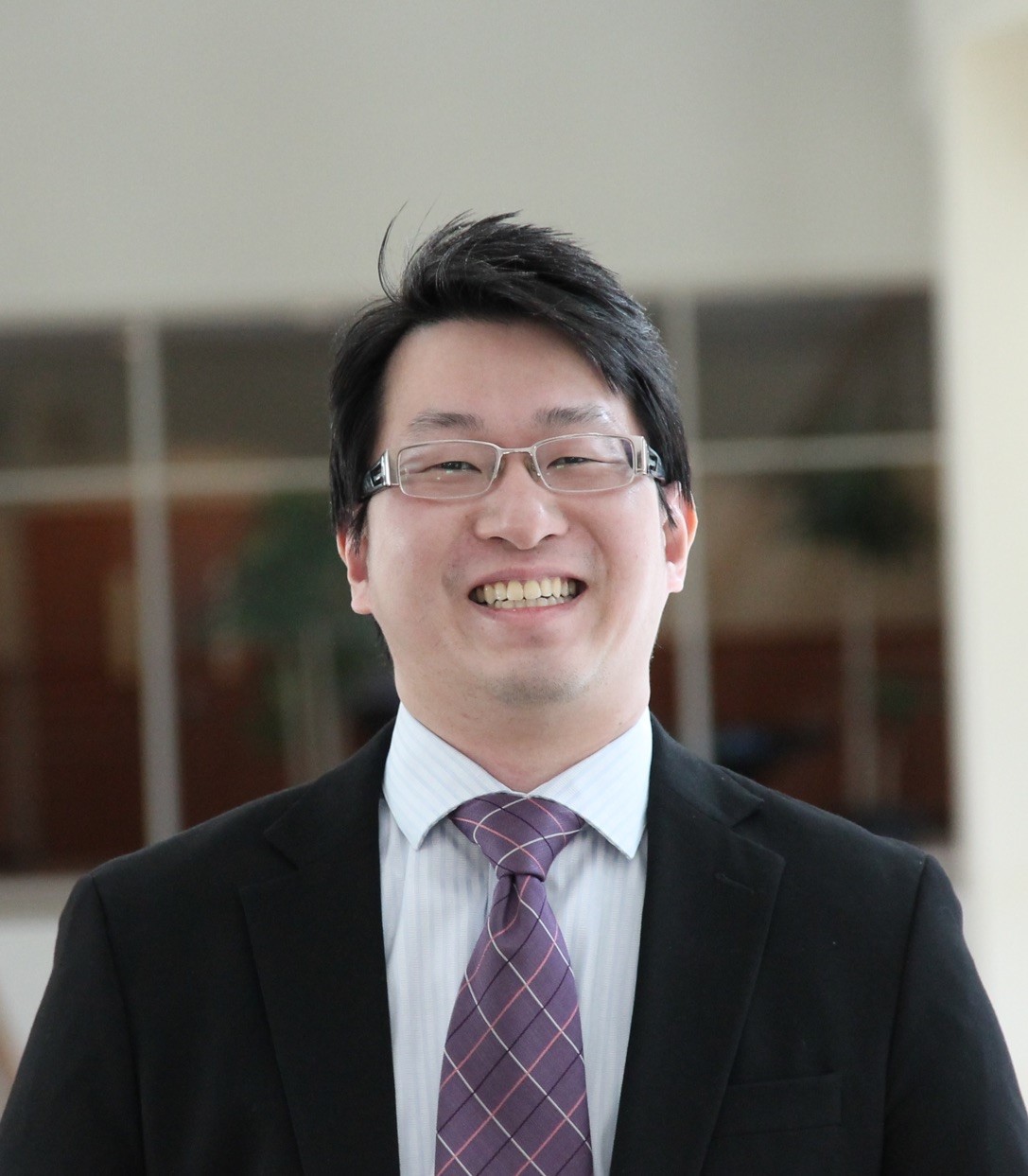Baylor Physics Professor Selected for Prestigious DARPA Director’s Fellowship

Howard Lee, Ph.D., assistant of professor of physics in Baylor's College of Arts and Sciences, was awarded the prestigious Director's Fellowship from the Defense Advanced Research Projects Agency (DARPA).
Media Contact: Lori Fogleman, 254-710-6275
Follow Lori on Twitter at @LoriBaylorU
Follow us on Twitter: @BaylorUMedia
by Cacey Vigil, student news writer, Baylor Media and Public Relations
WACO, Texas (Sept. 13, 2019) – Howard Lee, Ph.D., assistant professor of physics in Baylor University’s College of Arts & Sciences, was awarded the prestigious Director’s Fellowship from the Defense Advanced Research Projects Agency (DARPA).
In 2017, Lee won the DARPA Young Faculty Award (YFA), a program designed to identify outstanding early-career researchers in junior research positions in academia and provide them with funding in hopes of developing the next generation of academic scientists, engineers and mathematicians to aid DARPA’s defense-focused mission.
The DARPA Director’s Fellowship is an award given to a limited number of YFA recipients who have demonstrated exceptional project performance over a 24-month period. This year, Lee was one of 12 YFA recipients granted with the Director’s Fellowship.
“This is a recognition that our research on the DARPA’s project in the last two years was performed quite well and DARPA and its directors are willing to support me further on our research,” Lee said.
The fellowship granted Lee $266,000 and will allow him to continue his project for up to two years. Lee’s project studies the nonlinearity optical properties of “zero-index” optical materials.
“We use high power ultrafast laser pulses to study the ‘nonlinear responses’ of these special kinds of materials and nanostructures,” Lee said.
The fellowship will provide Lee with the necessary funding and opportunity to continue studying the extreme nonlinear optical properties of zero-index materials and films.
In addition to the funding, the fellowship provides Lee’s group the opportunity to potentially collaborate with other world-class groups who are studying the epsilon-near-zero optical properties.
“We hope to further integrate these nonlinear materials for on-chip applications,” Lee said. “Our studies might open distinct functionalities to the path of revolutionary nanoscale nonlinear optics and ultrafast on-chip optical devices. Such as on-chip high harmonic generation, tunable nonlinear metasurfaces, nonlinear beam steering devices, reconfigurable holography displays, and ultrafast optical switches for next-generation imaging, communication, and defense technologies.”
Lee is among the multidisciplinary Baylor faculty who research in the field of Materials Science, one of the five signature academic initiatives within the University’s Illuminate strategic plan. As Baylor pursues recognition as a Research 1/Tier 1 institution and a national Christian research university, investments in Materials Science research are positioning Baylor as a leader in technologies that make products faster, stronger and lighter, providing solutions for enhanced quality of life.
ABOUT BAYLOR UNIVERSITY
Baylor University is a private Christian University and a nationally ranked research institution. The University provides a vibrant campus community for more than 17,000 students by blending interdisciplinary research with an international reputation for educational excellence and a faculty commitment to teaching and scholarship. Chartered in 1845 by the Republic of Texas through the efforts of Baptist pioneers, Baylor is the oldest continually operating University in Texas. Located in Waco, Baylor welcomes students from all 50 states and more than 90 countries to study a broad range of degrees among its 12 nationally recognized academic divisions.
ABOUT THE COLLEGE OF ARTS & SCIENCES AT BAYLOR UNIVERSITY
The College of Arts & Sciences is Baylor University’s oldest and largest academic division, consisting of 25 academic departments and seven academic centers and institutes. The more than 5,000 courses taught in the College span topics from art and theatre to religion, philosophy, sociology and the natural sciences. Faculty conduct research around the world, and research on the undergraduate and graduate level is prevalent throughout all disciplines. Visit www.baylor.edu/artsandsciences.